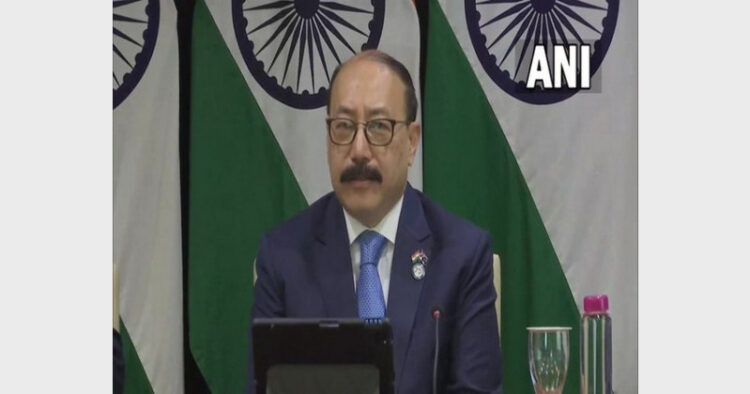Foreign Secretary Shringla said Morrison expressed understanding of India's position on the Ukraine issue and both leaders exchanged views on regional and global issues of mutual interest, including shared concerns over terrorism.
New Delhi: Prime Minister Narendra Modi and his Australian counterpart Scott Morrison on Monday, March 21, held their hour-long virtual summit in which both nations decided to strengthen their Comprehensive Strategic Partnership.
In his opening remarks, Australian PM Morrison slammed "Russia's unlawful invasion of Ukraine" and spoke about the implications it would have for the Indo-Pacific region due to this "coercion" policy.
Foreign Secretary Harsh V Shringla later said at a special briefing that both the Ukraine issue and China's role in the Indo-Pacific region were discussed, and the Australian leadership showed some understanding of India's position. The Australian leadership understands India's position on the Russia-Ukraine conflict as New Delhi has so far maintained almost an equal distance and pushed for diplomacy to end the war.
Shringla said, "Ukraine and China issues were discussed. On the Ukraine issue, it was clear that the two sides had referred to the
Quad summit in which the leaders had a fairly clear perspective that the situation in Ukraine should not impact the Indo-pacific."
Both leaders called for an immediate halt to violence in Ukraine. Morrison expressed understanding of India's position on the Ukraine issue, the Foreign Secretary said.
"There was serious concern about the ongoing conflict and humanitarian situation in Ukraine and both Modi and Morrison emphasised the need for cessation of hostilities and violence in Ukraine," Shringla said.
Of course, unlike its Quad partners, the US, Japan and Australia, India has not condemned the Russian invasion of Ukraine.
Shringla also said that India and Australia were keen to finalise the Comprehensive Economic Cooperation Agreement and that it will open new opportunities to expand bilateral trade and investment ties.
The foreign secretary said the two leaders exchanged views on regional and global issues of mutual interest, including shared concerns over terrorism.
Shringla said Modi also referred to the situation in eastern Ladakh and he emphasised that peace and tranquillity in the region was
essential for the normalisation of India's ties with China.
In his opening remarks, Mr Modi focused on an "open and inclusive" Indo-Pacific region and the need for the Quad.
Both the leaders also discussed the situation in Myanmar after the military coup there in February last year and supported the ASEAN
initiatives for peace there.














Comments